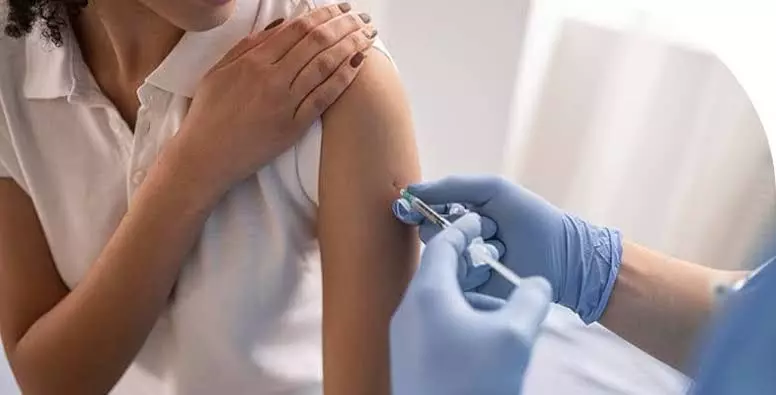Adult vaccinations in Hyderabad only at 4 per cent: study
In Hyderabad, the survey found that 53 per cent of adults aged 50 years and older are aware of adult vaccination, a relatively higher awareness rate compared to the national average
By Anoushka Caroline Williams
Hyderabad: A recent survey conducted by The Association of Physicians in India (API) and Ipsos has shed light on the low adoption of adult immunisation in Hyderabad, especially among adults aged 50 years and older.
The study, which covered 16 cities across India, revealed compelling insights into why the administration of adult vaccines remains minimal.
Hyderabad, a city known for its vibrant culture and diverse population, provides a unique perspective on the challenges and opportunities surrounding adult vaccination.
High awareness but low uptake in Hyderabad
In Hyderabad, the survey found that 53 per cent of adults aged 50 years and older are aware of adult vaccination, a relatively higher awareness rate compared to the national average. However, the startling statistic is that only 4 per cent of these adults have actually taken any adult vaccines. This discrepancy between awareness and action highlights a critical issue in the healthcare landscape of the city.
Doctor-Patient divide
One of the key findings in Hyderabad, mirroring the national trend, is the disconnect between doctors and their patients regarding adult vaccination.
The survey revealed that a significant number of doctors hesitate to discuss adult vaccination with their patients due to various reasons, including time constraints and concerns that patients are less receptive to vaccination recommendations.
Patients, on the other hand, attribute their low vaccination rates to a lack of proactive recommendations from their healthcare providers. Many believe that if vaccination were necessary, their doctors would recommend it. This mismatch in perception between doctors and patients underscores the need for clearer communication and guidance in the medical community.
Trust in healthcare providers
Interestingly, the survey found that a considerable percentage of adults aged 50 years and older in Hyderabad (81 per cent) would trust their doctor’s word if advised to get vaccinated.
However, only 7 per cent of these adults claimed that doctors have recommended adult vaccination to them. This statistic suggests that the potential impact of healthcare providers in promoting adult immunisation remains largely untapped.
Addressing misconceptions
Misconceptions about adult vaccination also pose a significant barrier to its adoption. In Hyderabad, as in the rest of the country, many believe that multiple vaccine doses can make them dependent on vaccines. A considerable percentage also thinks that there are better ways to protect against diseases, and a majority feel that diseases other than Covid are not severe enough to warrant vaccination.
The cost factor
Cost is another concern that adults and their caregivers in Hyderabad mentioned as a deterrent to adult vaccination. A significant number (67 per cent) believe that adult vaccines are unaffordable, a perception that surpasses the national average.
Shingles awareness
The survey also delved into the awareness of shingles — a vaccine-preventable disease prevalent among adults aged 50 years and older. Hyderabad exhibited low awareness of shingles, with patients struggling to differentiate it from other skin conditions. This lack of awareness resulted in delays in diagnosis and less effective treatments.
The survey highlights the importance of addressing cost concerns and raising awareness about vaccine-preventable diseases like shingles.
As Hyderabad continues to grow and evolve, ensuring that its ageing population is adequately protected through immunisation becomes an essential public health imperative. It’s time for a collaborative effort among healthcare professionals, policymakers, and the community to promote adult immunisation and improve overall public health outcomes in the city.